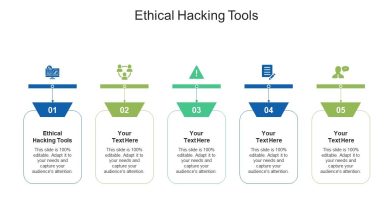The Complete Guide to Website Development for Beginners

It’s like sipping from a fire hose when it comes to web development. You’ve turned the hose on full blast by Googling “coding.” This guide will gradually introduce you to the world of web development and pique your interest in it. It isn’t intended to be a comprehensive guide.
What is the definition of website development?
The effort that goes into creating a website is referred to as website development. This might apply to anything from a simple plain-text webpage to a large web application or social network development.
Web development encompasses all related development activities, such as client-side scripting, server-side scripting, server, and network security settings, eCommerce development, and content management system (CMS) development, in addition to web markup and code.
What is the significance of web development?
You could be a business owner looking for a freelance developer to design your website, a marketer selling a vision to your development team, or a student interested in pursuing a career in development. Understanding the fundamentals of website building can be beneficial in today’s technology-driven world, regardless of who you are or why you’re reading this tutorial.
Web development is a rapidly growing sector as well. Web developer employment is predicted to increase by 13% between now and 2028. That’s a lot faster than most other IT jobs.
Types of Web Development
1. Front-end Development
Front-end developers work on the client-facing (or user-facing) side of websites, applications, and software, or what users see. They create the visual features of the site, such as the layout, navigation, graphics, and other aesthetics.
These developers’ primary responsibility is to create interfaces that assist users in achieving their objectives, which is why they frequently contribute to the user experience component of their projects. Front-end developers with a background in user experience are better able to empathise with end-users.
2. Back-end Development
The back-end is what users don’t see if the front-end is what they see. Back-end web developers work behind-the-scenes on the servers of websites, programmes, and software to ensure that everything is working properly.
These programmers handle the code for security, content, and site structure in systems such as servers, operating systems, APIs, and databases. To get their products in front of users, they work with front-end developers.
3. Full Stack Development
Developers that work on both the front-end and back-end of a website are known as full stack developers. From start to finish, they can design a website, application, or software programme. The term “stack” refers to the several technologies that handle various functions on the same website, such as the server, interface, and so on.
Full stack developers are in high demand because they require years of expertise in the sector to gain the requisite skills. Their broad understanding enables them to improve performance, detect issues before they occur, and assist team members in comprehending the various components of a web service.
4. Website Development
Website developers are classified as front-end, back-end, or full-stack. These specialists, on the other hand, focus on developing websites rather than mobile apps, desktop software, or video games.
5. Desktop Development
Desktop developers create software apps that run locally on your device rather than via a web browser over the internet. If an application can run both online and offline, these developers’ skillsets may overlap with those of web developers.
6. Mobile Development
Mobile app developers create apps for mobile devices like smartphones and tablets. Phone applications are unlike other websites and software programmes in that they require a unique set of development abilities and knowledge of specialised programming languages.
7. Game Development
Game developers write code for video games, including console games and mobile games, hence this field overlaps with mobile development in some ways.
Their developers, on the other hand, specialise on creating game experiences, which is a whole distinct skill set. Try checking out Graphic Design Course in Vadodara.
8. Embedded Development
Embedded developers work with any gear that isn’t a computer (or, at least, what most of us think of as a computer, which includes a keyboard and screen). Electronic interfaces, consumer gadgets, IoT devices, real-time systems, and other items fall under this category.
Embedded development is growing more popular as the number of interconnected devices grows, as evidenced by smart appliances, Bluetooth technology, and virtual assistants.
9. Security Improvements
Methods and processes for the security of a software application or website are established by security developers. These programmers usually operate as ethical hackers, attempting to “break” websites in order to uncover security flaws without causing harm. They also create technologies that detect and eliminate security threats.
A great thing is that a institute is also at Gujarat. Do check out Web Design Course In Vadodara. The internet isn’t going away anytime soon. It’s becoming better all the time, and web developers are at the forefront of these advancements. Web development influences practically every aspect of your day — and your business — from this blog to your favourite social network to the apps you use on your phone.




